PUBLICATIONS
As our work progresses, publications are arising from our research themes and cross-cutting projects. We produce working papers, journal articles, evidence submissions to government enquiries, essays, books and book chapters. Subscribe to our newsletter to receive a monthly digest in your inbox. If you want to hear more frequently from us, you can subscribe to email updates from the website directly.

This paper presents a systematic approach to identifying, analysing and transforming growth dependencies in the welfare state. Using adult social care as our case study, we explore how growing demand, rising costs and rent seeking can create growth dependencies. We analyse the structures that drive and reinforce these growth dependencies and, in so doing, we identify fruitful levers for transformation and mitigation.

Journal paper by Sarah Hafner, Aled Jones and Annela Anger-Kraavic, developing a system dynamics energy-economy model to explore the long-term macroeconomic effects, and changes in the power system costs of different low-carbon electricity transition scenarios. The paper argues that an early retirement of a certain amount of brown energy infrastructure is required, and needs to be determined with care.
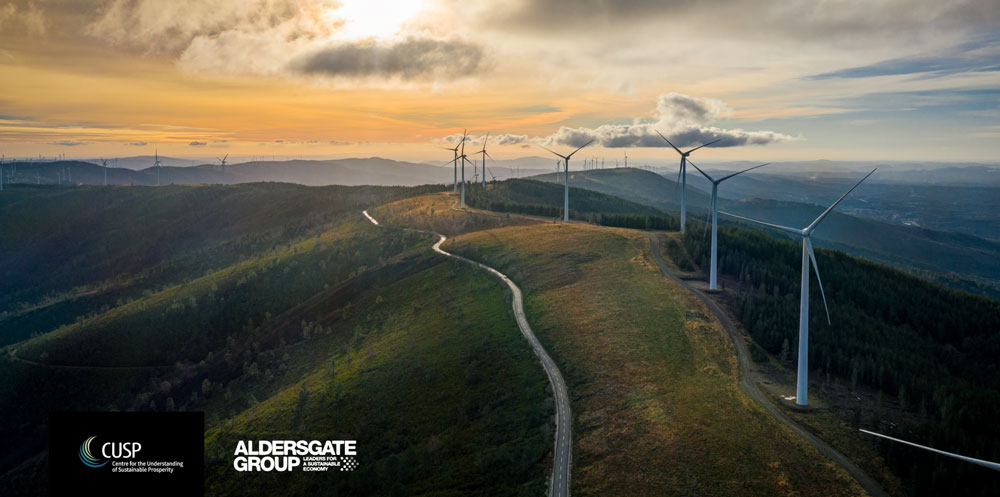
In this new report, the Aldersgate Group and CUSP urge the Government to use the UK’s current leadership position on climate change and the environment, and its ongoing review of financial services regulations, to embed environmental sustainability into the rules governing the UK’s financial system and influence similar changes to international rules and standards.

A new joined-up post-Covid biodiversity policy paper argues that addressing biodiversity loss requires a transformative change of the global economic system, and concludes that the COVID‐19 pandemic, and current delays in the negotiation of the post‐2020 global biodiversity agenda of the Convention on Biological Diversity heighten the urgency to build back better for biodiversity, sustainability, and well‐being.

Post‐pandemic recovery must address the systemic inequality that has been revealed by the coronavirus crisis. The roots of this inequality predate the pandemic and even the global financial crisis. They lie rather in the uneasy relationship between labor and capital under conditions of declining economic growth.

This paper presents a systems dynamics model for exploring possibilities for achieving four SDGs (SDG-1, SDG-8, SDG-12, and SDG-13) in Iran. The model is used to generate four possible stories about the implementation of measures to achieve these SDGs in the future of the Iranian economy from 2020 to 2050. The results of the simulations shows that transformational scenarios provide better pathways in comparison to conventional scenarios. Moreover, transformational policy changes and extraordinary efforts are required for progress in achieving SDGs overall.

Welfare systems across the OECD face many combined challenges, with rising inequality, demographic changes and environmental crises likely to drive up welfare demand in the coming decades. Economic growth is no longer a sustainable solution to these problems. It is therefore imperative that we consider how welfare systems will cope with these challenges in the absence of economic growth. We review the literature tackling this complex problem.
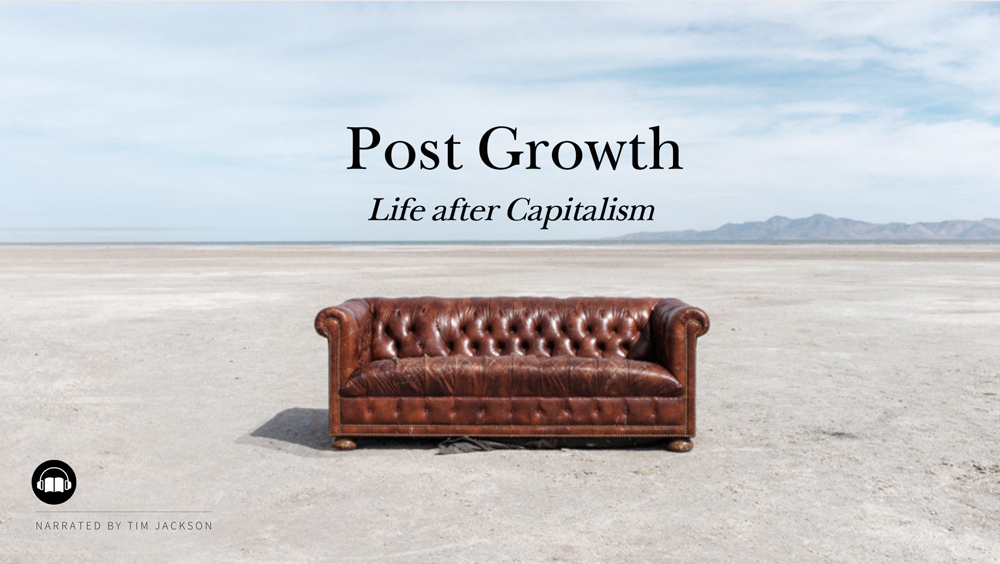
Capitalism is broken. The relentless pursuit of more has delivered climate catastrophe, social inequality and financial instability—and left us ill prepared for life in a global pandemic. Weaving together philosophical reflection, economic insight and social vision, Tim Jackson’s passionate and provocative book dares us to imagine a world beyond capitalism—a place where relationship and meaning take precedence over profits and power. Post Growth is both a manifesto for system change and an invitation to rekindle a deeper conversation about the nature of the human condition.
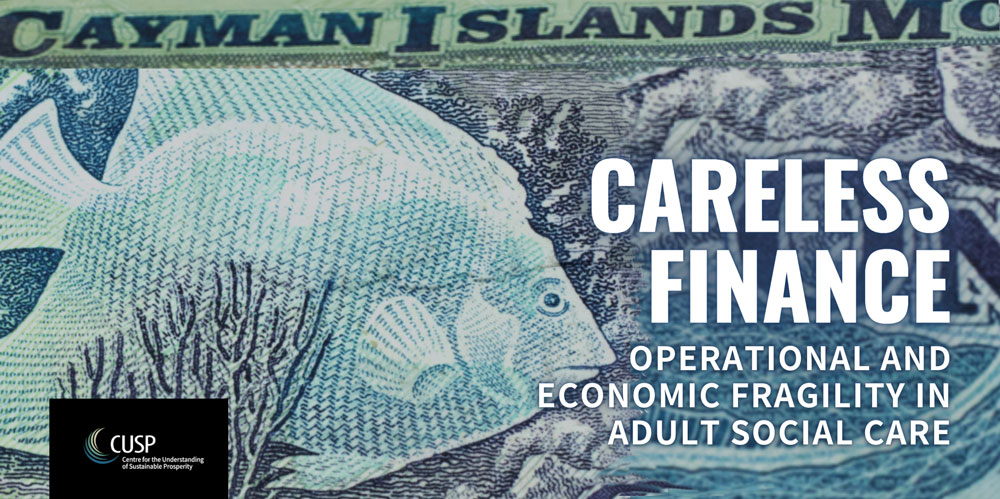
Adult social care across the OECD is in crisis. Covid-19 has exposed deep fragilities. Principal amongst these is the process of marketisation and financialisation of the social care sector. In this paper, we take a critical perspective on this process. We find that marketisation has facilitated the conditions for both financial fragility and operational failure; and argue that post-pandemic recovery represents a once-in-a-generation opportunity to overhaul these conditions and transform adult social care.

The Financial Independence Retire Early (FIRE) community consists of individuals each personally dedicated to reducing consumption, so as to build up financial surpluses that are eventually adequate to live off. Using semi-structured interviews with leading FIRE advocates and analysis of books and blog content, this paper assesses the ambivalent moral economy of FIRE.

The TranSim modelling work shows that the negative effects associated with the transition—recession, stagnation, stagflation, increasing inequality and asset stranding—are positively related to the capital intensity of green energy production and reductions in EROI. Policy makers should pay close attention to the overall EROI of the entire energy system when determining energy policy. If significant reductions in EROI are unavoidable, then policy could be used to mitigate some of its negative economic effects.

Labour productivity is a key concept for understanding the way modern economies use resources and features prominently in ecological economics. Ecological economists have questioned the desirability of labour productivity growth on both environmental and social grounds. In this paper we aim to contribute to ongoing debates by focusing on the link between labour productivity and worker wellbeing.

This paper proposes a new, integrative typology of actors involved in climate change mitigation policy in the United Kingdom (UK) and a method for mapping these actors and selecting their typological descriptors onto a 2D space.

This working paper summarises the initial findings of a project whose aim has been to develop an agent-based (AB), stock-flow-consistent (SFC) macroeconomic framework to study the economic, financial and social implications of the transition to a net zero carbon economy.

Mainstream environmental politics has become a largely technical, problem-solving matter of realising concrete targets—environmental politics scholarship seems to have followed suit. This article contends a solely target-driven discourse loses sight of two vital dimensions of environmental politics: radical imagination and ideology critique.

Our research in Woking commenced with an in-depth case study of the town, comprising desk-based research and interviews with representatives of a variety of local organisations community groups, charities, and the local council. Our aim was to gain a clearer historically and contextually based understanding of the town, and to help in identifying the key issues which impact on local people.

Our research in Hay-on-Wye commenced with an in-depth case study of the town, comprising desk-based research and interviews with representatives of a variety of local organisations community groups, charities, and the local council. Our aim was to gain a clearer historically and contextually based understanding of the town, and to help in identifying the key issues which impact on local people.

Planetary health sees neoliberal capitalism as a key mediator of socioecological crises, a position that is echoed in much COVID-19 commentary. In his essay for The Lancet Planetary Health, Simon Mair sets out an economic theory that emphasises some of the ways in which neoliberal capitalism’s conceptualisation of value has mediated responses to COVID-19.
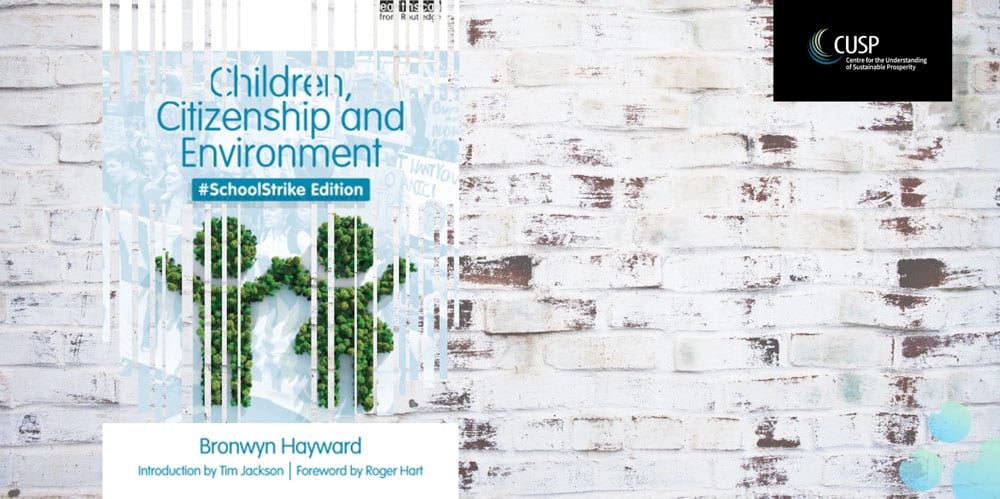
A new, significantly revised second edition of Bronwyn Hayward’s acclaimed book Children Citizenship and Environment is out now. Our CUSP co-investigator from Canterbury University NZ and colleagues examine how students, with teachers, parents, and other activists, can learn to take effective action to confront the complex drivers of the current climate crisis, including: economic and social injustice, colonialism and racism.
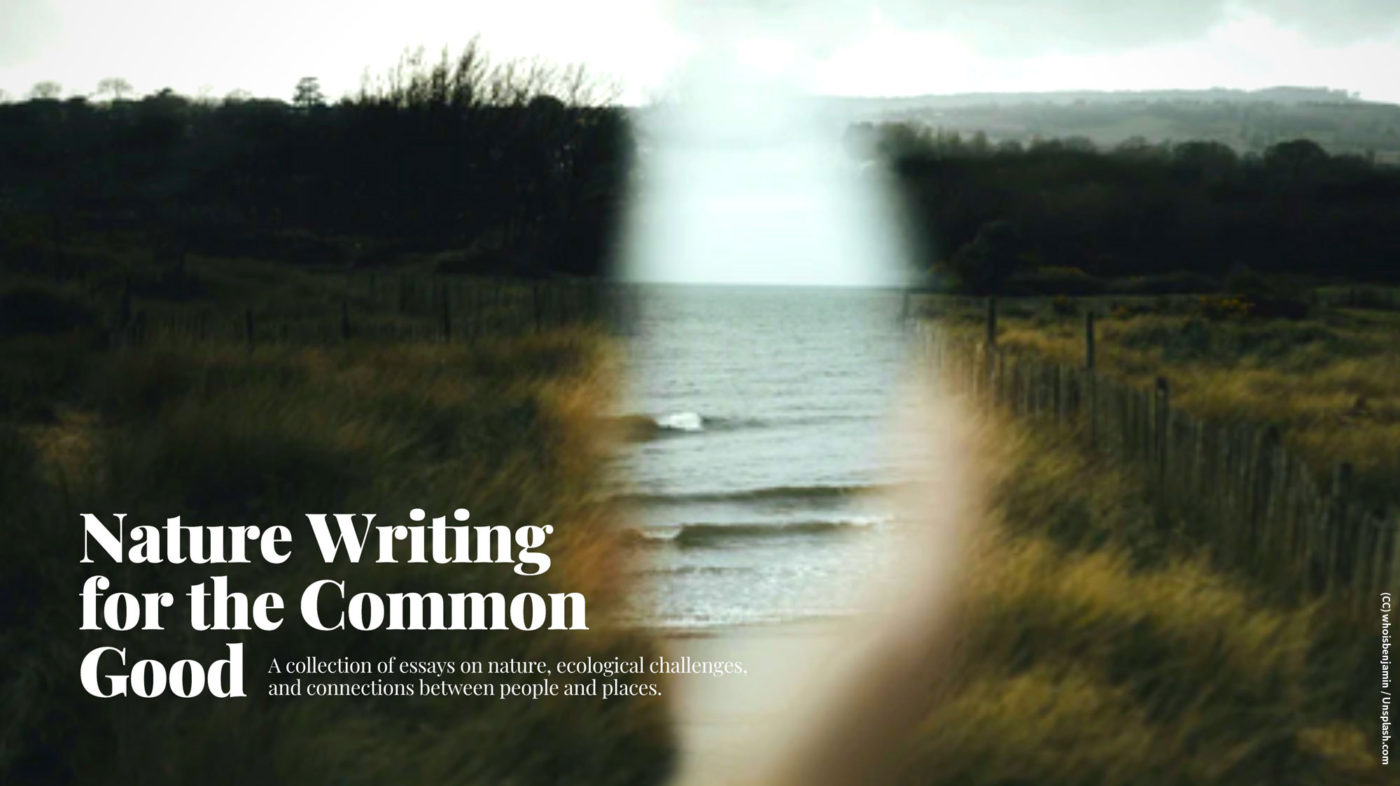
Can Nature Writing be a force for saving what we wish to conserve and carry on loving, and to hand on to future generations? Can it be a contribution to the political and social movements for a re-imagination of the good life, of sustainable prosperity? This is an online collection of previously unpublished authors on nature, ecological challenges, and connections between people and places.
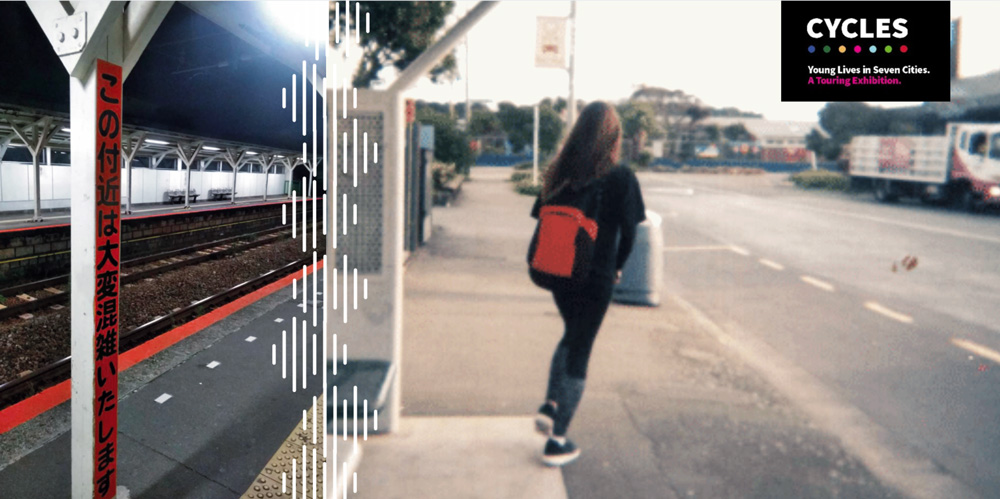
This journal paper provides a comparative analysis of young people’s experiences with local transport and green space in seven diverse urban communities (Christchurch, New Zealand; Dhaka, Bangladesh; Lambeth/London, UK; Makhanda, South Africa; New Delhi, India; São Paulo, Brazil; and Yokohama, Japan)—as part of the CYCLES study.
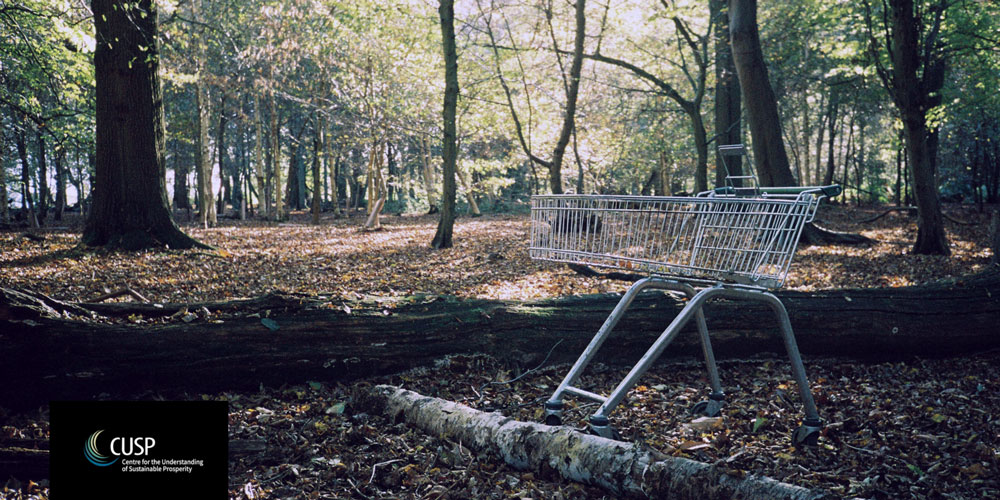
The COVID-19 pandemic has caused dramatic and unprecedented impacts on both global health and economies. Many governments are now proposing recovery packages to get back to normal, but the 2019 Intergovernmental Science-Policy Platform for Biodiversity and Ecosystem Services Global Assessment indicated that business as usual has created widespread ecosystem degradation. Therefore, a post-COVID world needs to tackle the economic drivers that create ecological disruptions.

Current global changes require new business approaches driving sustainable development on all fronts. To date, most business approaches have focused on sustainable marketing and corporate social responsibility initiatives. In this field study, we examine IKEA’s Live Lagom project.

Skills deficit needs to be urgently tackled to get to net zero. In its briefing with CUSP, Upskilling the UK workforce for the 21st century, the Aldersgate Group calls for urgent action to plug the deficit in skills that currently undermines the growth of low carbon supply chains across the UK economy.

Recent attempts by local governments to engage in participatory policy-making hint at a willingness for a more democratically inclusive approach to policy. However, there is often a gap between the rhetoric of citizen engagement and the actual implementation of these policy-making initiatives.
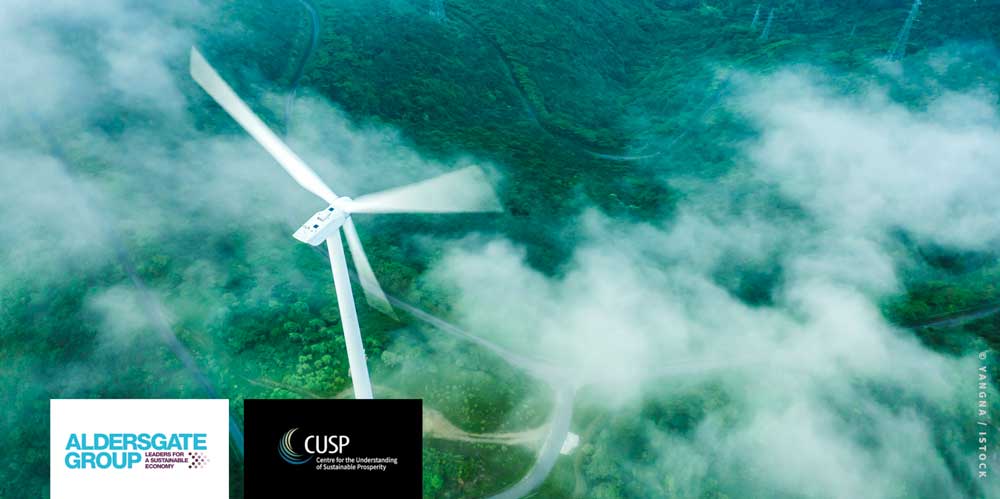
Following extensive cross-industry and civil society engagement, our partners at the Aldersgate Group published a new report, setting out some of the key policy decisions that need to be taken in this parliamentary term to put the UK on a credible pathway to building a competitive, net zero emissions economy.
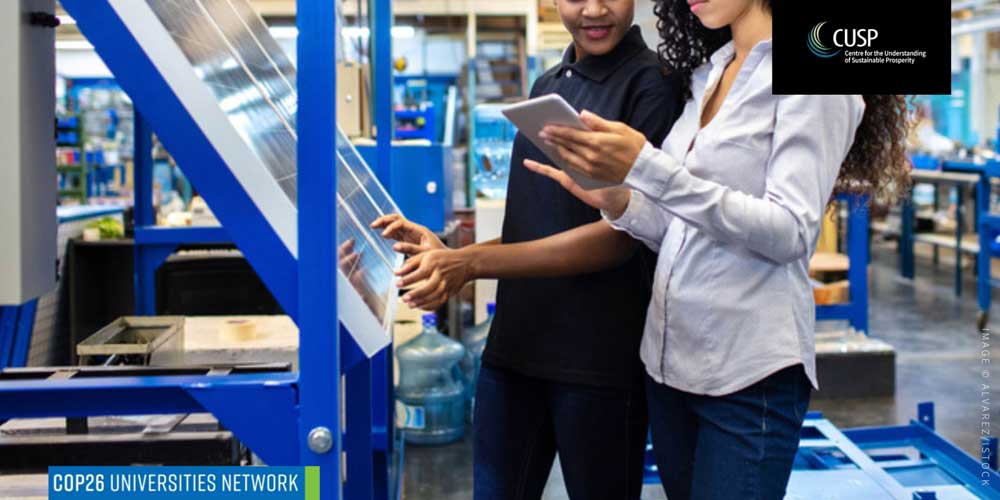
The transition to net-zero cannot be sustainable if it creates or exacerbates social inequalities. In a new COP26-Universities-Network briefing, the authors—including CUSP co-investigator Dr Marit Hammond—emphasise that the impacts of climate change and the policy measures implemented to mitigate them, vary greatly depending on place, time and social contexts; and identify a number of tools for policymakers to meet targets whilst also upholding social justice.

New edited collection by CUSP investigator Kate Oakley and Mark Banks, critiquing the current model of the creative economy and considering sustainable alternatives; exploring the complex interactions between cultural prosperity, employment quality and leisure; and showcasing interdisciplinary and international perspectives on creative economy assessment.

This book by CUSP co-investigator Will Davies takes stock of a historical moment that no longer recognises itself. Davies tells the story of the apparently chaotic and irrational events, and extracts their underlying logic and long-term causes. What we are seeing are the effects of the 2008 financial crash, the failure of the British neoliberal project, the dying of Empire, and the impact of the changes that technology and communications have had on the idea of the public sphere as well as the power of information.

This paper draws on the insights from an exploration of Instagram posts tagged #goodlife to consider the role of Instagram in the constitution of good life narratives that are available to young people. Using network analysis tools, the researchers analyse the relationships between themes of hashtags appearing on 793 posts tagged #goodlife.

Well-known academic and non-academic institutions call for a new approach in economics able to capture features of modern economies including, but not limited to, complexity, non-equilibrium and uncertainty. In this paper, we provide a systematic review of ecological macroeconomic models that are suitable for the investigation of low-carbon energy transitions and assess them based on the features considered desirable for a new approach in economics.

Materialism is associated with a broad range of negative outcomes for individuals, societies, and the planet. This study demonstrates that encouraging and activating self-transcendence values and intrinsic goals is an effective strategy to c materialistic goal orientation.

This paper presents a stock-flow consistent (SFC) macroeconomic simulation model for Canada. Contrary to the widely accepted view, the results suggest that ‘green growth’ (in the Carbon Reduction Scenario) may be slower than ‘brown growth’. More importantly, we show (in the Sustainable Prosperity Scenario) that improved environmental and social outcomes are possible even as the growth rate declines to zero.

The need to locate ways of living that can be both beneficial to personal well-being and ecologically sustainable is becoming increasingly important. Flow experiences show promise for the achievement of personal and ecological well-being. However, it is not yet understood how the materialistic values promoted by our consumer cultures may impact our ability to experience flow.

Compiled by academics at three UK universities, this report presents a profile of participants in Extinction Rebellion’s (XR) mass civil disobedience actions in London in April and October 2019. The report is compiled from three datasets: a protest survey of participants in each of these two XR actions; observational analysis of court hearings of XR activists; and data from a previous survey of participants in two climate change marches 2009/10.

Through the APPG on Limits to Growth, MPs across the political spectrum have written to the UK Chancellor, urging him to prioritise wellbeing over GDP growth statistics if his plans to rebuild the economy after Covid-19 are to lead to a green recovery.
